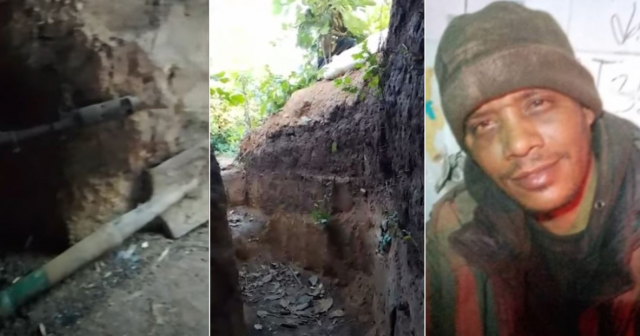The Cuban soldiers themselves recruited to join the Russian army in the war in Ukraine insist on denying that the Cuban government was not aware of the recruitment.
Some of them who have communicated with the channelAmerica Camel They assure that they did know why they went to Russia, they do receive the payments and that at the moment they are alive to tell that the government in Havana knew everything and that it is hypocrisy to accuse them of being mercenaries.
"Of course they knew", declared from Russia in a telephone conversation with journalist Juan Manuel Cao, a Cuban identified as "Michel."
"Before I came here the Cuban government already knew about it because it was posted on all social networks, even inCubadebate was posted", he stated emphatically.
"If only men are leaving on direct flights from Matanzas to Moscow, Russia, what will it be for? To work in a 'go-go'? It's supposed to be for the war," he added.
The young man insisted on the same aspect indicated by other recruits who have given statements:The passport was not minted upon departure from Cuba, but at the entrance to Moscow.
"It's the same thing that I tell my family: 'If my country is aware of where I'm going, if I'm not going to a war, why don't they stamp my passport when I leave," he questioned.
"Personally, I don't believe in anything the Cuban government says. If I didn't believe it when I was there, how can I believe them now that I'm here?", he concluded.
In recent days, an officer of theRevolutionary Armed Forces (FAR) who claimed to be in Russia toocontradicted the statements of the Cuban regime about a “human trafficking network,” and assured that the 90 Cubans under his command left the island with the full knowledge of the authorities.
“None of us left the country illegally,” said the FAR second lieutenant. Lázaro González, and confirmed that both he and the CubansUnder his command they were not recruited in Cuba through an illegal plot, but through the signing of a contract with the Russian army.
Also in that case, as evidence of the legality of the operation, González also emphasized that the Cuban immigration authorities did not stamp his passport upon leaving Cuba, an irregularity that he justified as a procedure so that there is no record of the departure of former military personnel. bound for Russia.
González, a native of Güines, Mayabeque province, lived in Cuba at the time of enlisting in the Russian army.It was in Cuba where he signed the contract with the army, and clarified that he read it in Spanish and was aware of its terms. In his case he denied that it reached him throughthe two women who mention other sources as internet recruiters, but declined to say the name or the institution through which the offer from Russia came to her.
Asked about the MINREX statement and the editorial ofGranmaon “the neutralization and dismantling of a human trafficking network that operates from Russia to incorporate Cuban citizens living there, and even some from Cuba,”He described these statements as “lies.”.
What do you think?
COMMENTFiled in:
